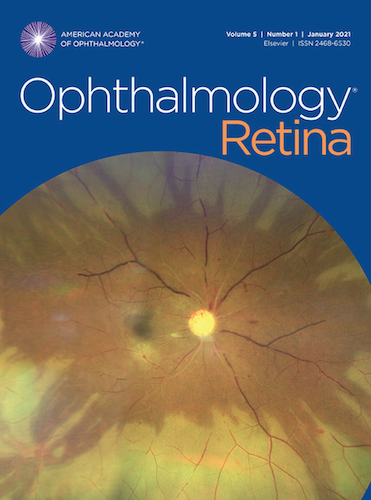Texas Retina Associates’ Ashkan Abbey, MD, has published research on macular holes in the January 4, 2021, issue of Ophthalmology Retina. Titled “Spontaneous Conversion of Lamellar Macular Holes to Full-Thickness Macular Holes: Clinical Features and Surgical Outcomes,” his article describes the clinical features and surgical outcomes of patients experiencing a spontaneous conversion of lamellar macular holes (LMH), to full-thickness macular holes (FTMH). A macular hole is a small break in the macula which is located in the center of the retina and is responsible for central vision. A LMH is a partial thickness defect in the macula.
Dr. Abbey and his fellow researchers from Paris and throughout the U.S. reviewed clinical charts and optical coherence tomography features of 20 eyes of 20 patients with LMH who experienced a spontaneous conversion to FTMH and underwent FTMH surgery. They found that patients with LMH may develop a FTMH with no evidence of vitreomacular traction. The vitreous is a clear, gel-like substance that attaches to the retina and the macula. As the eye ages or as a result of eye disease, the vitreous shrinks and pulls away from the retina and can completely separate. Vitreomacular traction happens when the vitreous does not separate and continues to tug on the macula. It can cause vision loss if not treated.
Dr. Abbey’s research found that a tangential traction from an epiretinal membrane may contribute to the sudden conversion from LMH to FTMH, but a progressive loss of retinal tissue and an inherent weakness of the foveal architecture in LMH eyes could be sufficient. An epiretinal membrane is a thin sheet of fibrous tissue that can develop on the surface of the macular area of the retina, and the fovea is a small depression in the center of the macula that contains only cones and supports the highest level of visual acuity and color discrimination. Most FTMH derived from LMH cases had a small diameter, showed epiretinal proliferation (thickness of the epiretinal membrane), limited retinal hydration, and were associated with relatively poor surgical outcomes compared to idiopathic FTMH.
Click here to access the abstract of the article.
Dr. Abbey cares for patients in our Dallas Main and Rockwall offices. Learn more about him here.


